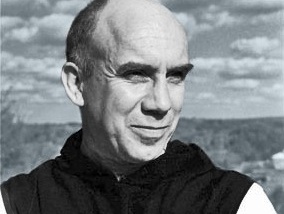
To Ernesto Cardenal
December 24, 1961
Though I do not have any definite news yet about the poems, I want to write to you now because Christmas week, as you know, is very busy here. As usual, the novices are decorating the novitiate. We have two very small Christmas trees, and the decorations have been somewhat restrained so far, but there is still one more afternoon and the Lord alone knows what monstrosities will make their appearance during that time.
I sent the small group of poems…to Jubilee and have not heard from him about them, but probably there is a letter from being held up with the Christmas mail, and I will not see it until Tuesday…[There is] the one thing [Laughlin] has been working on hardest with me… an anthology of articles on peace. This we both feel to be quite urgent, and we are giving it a lot of time and thought…
There is no telling what is to become of the work I have attempted with the Protestant ministers and scholars. Evidently someone has complained to Rome about my doing work that is “not fitting for a contemplative” and there have been notes of disapproval. The contacts will have to be cut down to a minimum…In this all I remain pretty indifferent, as a matter of fact. There are much wider perspectives to be considered. My concept of the Church, my faith in the Church, has been and is being tested and purified: I hope it is purified. Even my idea of “working for the Church” is being radically changed. I have less and less incentive to take any kind of initiative in promising anything for the immediate visible apostolic purposes of the Church. It is not easy for me to explain what I feel about the movements that proliferate everywhere, and the generosity and zeal goes into them. But in the depths of my heart I feel very empty about all that, and there is in me a growing sense that it is all provisional and perhaps has very little of the meaning that these zealous promoters attribute to it…The only result has been to leave me with a profound respect and love for these men, and an increased understanding of their spirit. But at the same time I am not sanguine about the chances of a definite “movement” for reunion, and, as I say, I am left with the feeling that the “movement” is not the important thing. As if there were something more hidden and more important, which is also much easier to attain, and is yet beyond the reach of institutional pressures.
I am deeply concerned about peace, and am united in working…for protest against nuclear war; it is paradoxically what one might call the most small and neglected of “movements” in the church…I do not complain, I do not criticize: but I observe with a kind of numb silence the inaction, the passivity, the apparent indifference and incomprehension with which most Catholics, clergy and laity, at least in this country, watch the development of pressure that builds up to a nuclear war. It is as if they had all become lotus-eaters. As if they were under a spell. As if with charmed eyes and ears they saw vaguely, through a comatose fog, the oncoming of their destruction, and were unable to lift a finger to do anything about it…I hope I am not in the same coma. I resist this bad dream with all my force, and at least I can struggle and cry out, with others who have the same awareness.
…I realize that I have to very careful how I protest because otherwise I will be silenced. And no doubt sooner or later I will be silenced. It is very difficult to get articles on peace past the censors…
From The Courage for Truth: Letters to Writers. Ed. by Christine M. Bochen. New York: Harper Collins (1993), pgs. 128-130.
FURTHER READING
An in-depth account of Merton’s life, with particular attention to his early work as a poet.
Reflections on his autobiography, The Seven Storey Mountain, at the time of its fiftieth anniversary.
Notes on Cardenal, now eighty-six years old, still writing on matters of politics and poetry.


